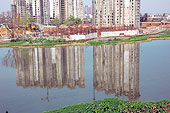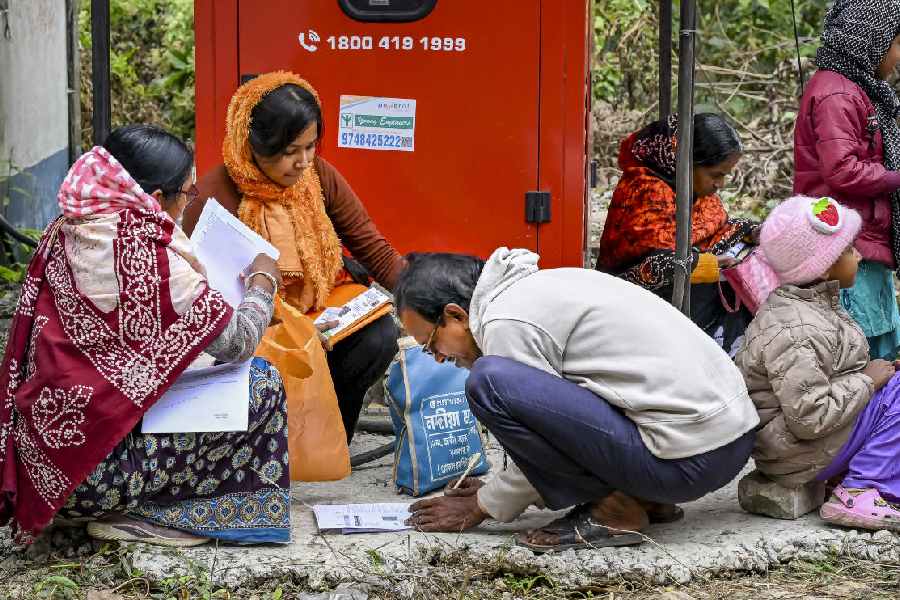 |
| The Bikramgarh Jheel. A Telegraph picture |
The problem
The Bikramgarh Jheel in Jadavpur is one of the biggest waterbodies in Calcutta, comparable to Rabindra Sarobar or Subhash Sarobar. It has been neglected for a long time. It was used as a waste dumping ground and polluted. Illegal garages, shops and residential quarters have encroached on it. The waterbody came into spotlight when it was alleged that the upcoming South City project on Prince Anwar Shah Road was trying to encroach on it, too. But nothing much has been done to save the jheel which is on the verge of disappearing.
Many uses of the jheel
The waterbody is important to local residents for several reasons. It raises the groundwater level in an area where it has already nose-dived and acts as the principal source of water during any fire hazard in the populated localities around.
It is also home to biodiversity. During my brief six-month preliminary study of Bikramgarh Jheel in 2004, I found about 32 kinds of flora (both aquatic and terrestrial), varied fauna and 22 kinds of birds in this lake.
These include the bronze-winged Jacana, colourful dragonflies and sparrows, some of which are very rare around an urban waterbody now. There are butterflies, snakes, molluscs and mongooses.
Who cares
Vasundhara, a local environmental organisation, has been fighting for the last five years to save the jheel, but there has been little progress.
We brought the matter before the Calcutta Municipal Corporation, Calcutta Improvement Trust, West Bengal Pollution Control Board, state fisheries department and the state environment department. Apart from the occasional inquiry and several promises, nothing has happened.
There have been public interest litigations against the encroachment, but the petitions are pending in court for about a year.
Kaustuv Basu
School of Environmental Sciences,
Jawaharlal Nehru University, New Delhi, and member, Vasundhara.
(Readers are invited to write to sunday.metro@abp.in to highlight environment hazards in the city)










